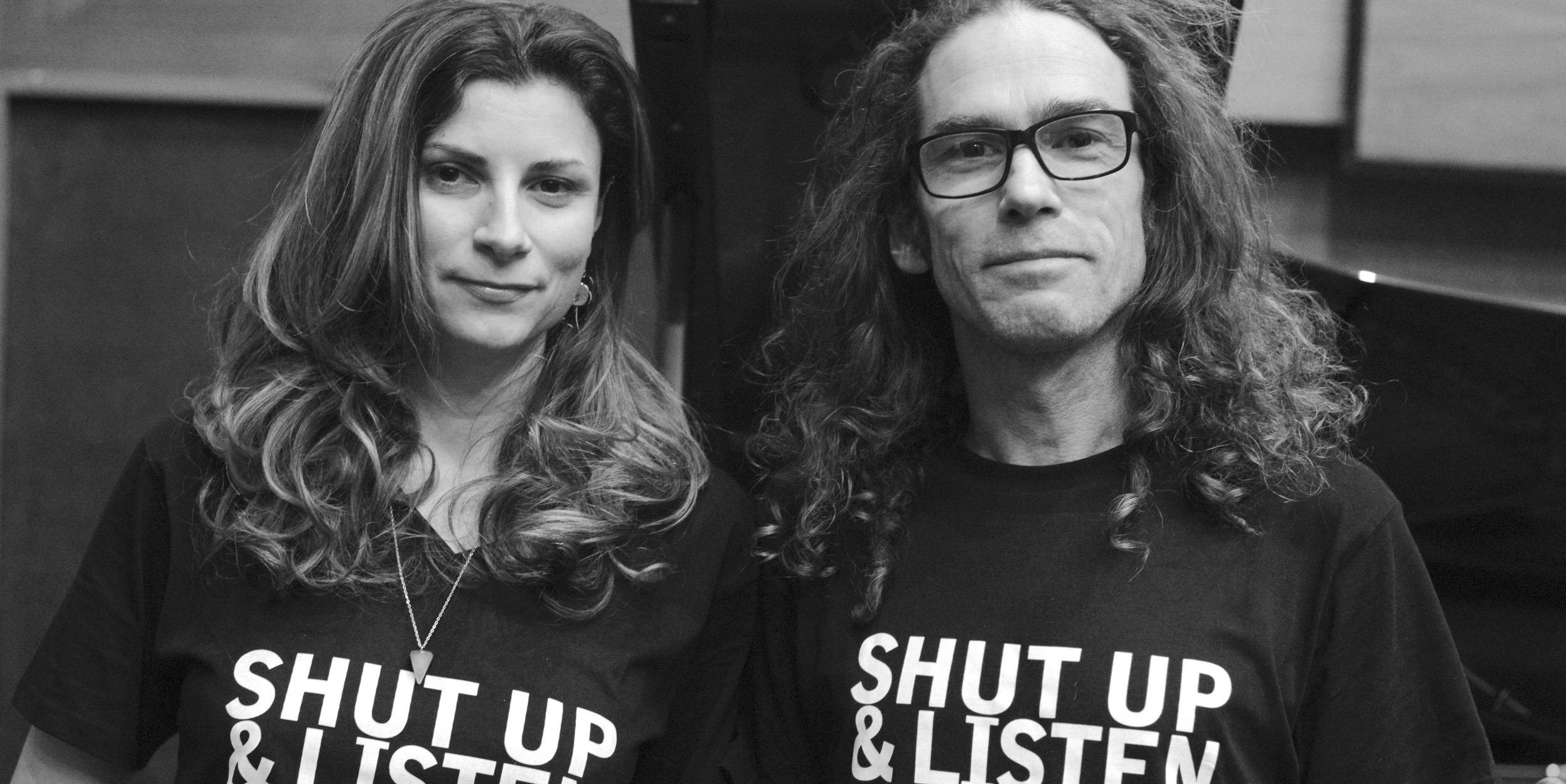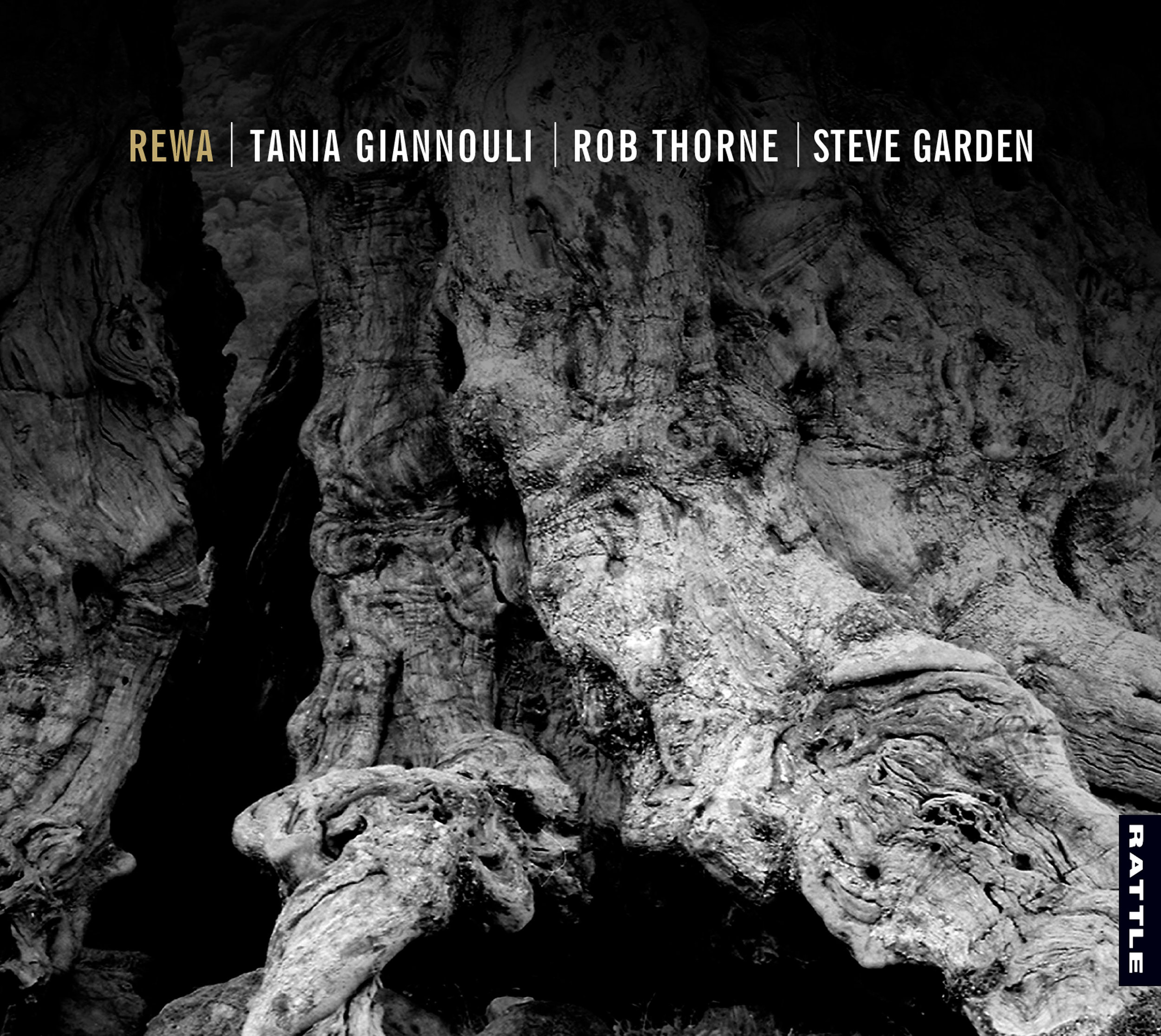Huffpost
Thános Mantzánas | Huffpost
Tania Giannouli is a pianist and composer who, from the beginning, chose a different approach and direction to music than most of her peers, where her focus was on contemporary, sometimes even avant-garde, music, with improvisation being central to her compositions and performances. Apart from teaching piano, Tania was a founding member of 4+1 and Schema Ensemble, but her own journey as a recording artist began with Forest Stories (Rattle, 2012), a collaboration with Portuguese wind player Paulo Chagas, a highly experimental improvisational work that established a solid relationship with New Zealand music label, Rattle Records.
In 2014 she formed the Tania Giannouli Ensemble (which also features saxophone, cello, percussion, and occasionally drums), releasing Transcendence the following year to wide critical acclaim. On this recording Tania explored a more melodic but no less adventurous side of her writing. Then came Rewa, an improvised collaboration with Maori musician Rob Thorne. The music was recorded in whole takes then worked on in post-production by Rattle Records founder and sound engineer Steve Garden.
Rewa is a spontaneous and unprejudiced first musical contact and acquaintance with the subconscious memories and experiences of two ancient civilizations, Greek and Maori. While the musicians worked within a very precise sound field, the recording opens a vast array of possible directions that could be tracked in future. Until then, the first priority is to tour this is very beautiful and at times exciting album.
Thános Mantzánas (music critic, journalist, writer): First of all what does the title "Rewa" mean?
Tania Giannouli: In the Maori language, the word ‘rewa’ has various interpretations. As a verb, it means melting, leaving, and elevating, but it also alludes to a ship's mast.
TM: How did you meet Rob Thorne and how did you decide to make this album together, how did the idea come about, and how did you get it done so soon?
TG: I knew Rob Thorne's work from his album Whāia Te Māramatanga, which was released by Rattle a month or so after Forest Stories. In April 2017 he came to Athens to give a concert at the Borderline Festival of the Onassis Foundation. We met for the first time a few hours before our scheduled session and recorded for two days. The whole album is free improvisation.
TM: By the way, it seems a little strange that you’re using a New Zealand label rather than a European company to release your albums. Why is that?
TG: I don’t find it strange. I feel a strong is affinity with Rattle, both musically and aesthetically. The level of our communication, our vision of music, and the supportive relationship we have developed is very good for me.
TM: What’s the most characteristic feature Steve brought to the album during post-production?
TG: His interventions in the raw material were very distinctive and decisive. Steve "enlightened" the material we gave him, giving it another dimension, much more organic. He is definitely the third creator of Rewa.
TM: How was the experience of playing for the first time (and even recording at the same time!) with instruments not only from a different background, but also from a culture as diverse and as far from ours as Maori is?
TG: The Maori instruments are called taonga puoro, which translates as "treasures that sing", and from what I can gather they are treated in a very special way by those who perform with them. Their ancient tradition, the wisdom and spirit of their ancestors, "speaks" through them. Rob, like all taonga puoro musicians, sees himself as a vessel (or conduit) for these ‘voices’, and treats them with special care and respect. In essence, anything we [in the West] understand about terms such as "composition" and "musical work" don’t apply to taonga puoro. In the recording session, Rob and I both let our ‘internal music’ lead us wherever it wanted.
TM: If you had to label the album in any way, would you describe it as modern music, experimental, improvised in the broadest sense, avant-garde, or something else?
TG: It’s difficult to label any of my music because it contains too many elements, and the same is true with Rewa. I would just say that it is music of today created by people from very different backgrounds and experiences.
TM: How does Rewa relate to the rest of your musical practice?
TG: Improvisation is central to what I do. Rewa is totally free improvisation, while other music of mine is more structured and written to a great extent. This is not the only difference, of course. References, language, and influences are much more distinct in the music I make with the Tania Giannouli Ensemble. With Rewa, Rob and I swam in uncharted waters.
TM: Is your new trio project with oud and trumpet associated with your previous recordings, or is it something entirely new and different, and what is the relationship between a pianist and composer of modern music with a traditional instrument like oud?
TG: The oud and the world that I inhabit as a musician and composer are both very attractive, and I don’t believe there are any restrictions with regard to piano and modern composition and working with traditional instruments. I had no hesitation in combining piano with shells in Rewa. The music we create is the important thing.
TM: So, are you particularly interested in experimenting with as many and varied instruments as possible, or is that just my impression?
TG: I am interested in making music that says things that cannot be said in words. It really doesn’t bother me what the instruments are.
TM: The musical idioms you work within don’t appeal to mainstream audiences, and may not be suitable for many venues in Greece, especially in the case of Rewa. Do you and Rob plan to make efforts in this direction?
TG: I believe there are places both here in Greece and abroad where Rewa could be played live and we are definitely looking at ways to do that.
TM: So what are your plans in the short-term, and for future recordings?
TG: In November I will play with my new trio at the very important German Jazzfest Berlin at the Berliner Festspiele. A new album with the trio and one more, a little later, with Tania Giannouli Ensemble are in my short-term plans.
When a musician is primarily motivated to surprise him/herself with every step they take, like Tania Giannouli does, the result can never be anything less than interesting. Those who subscribe to Heraclitus' dictum that the universe works on the basis of perpetual motion experience constant change and evolution. It is worth remembering that, according to Pythagoras, sound is just the "language of the universe”, "the music of the celestial spheres"...


















